CRJ 17:3 Out now!
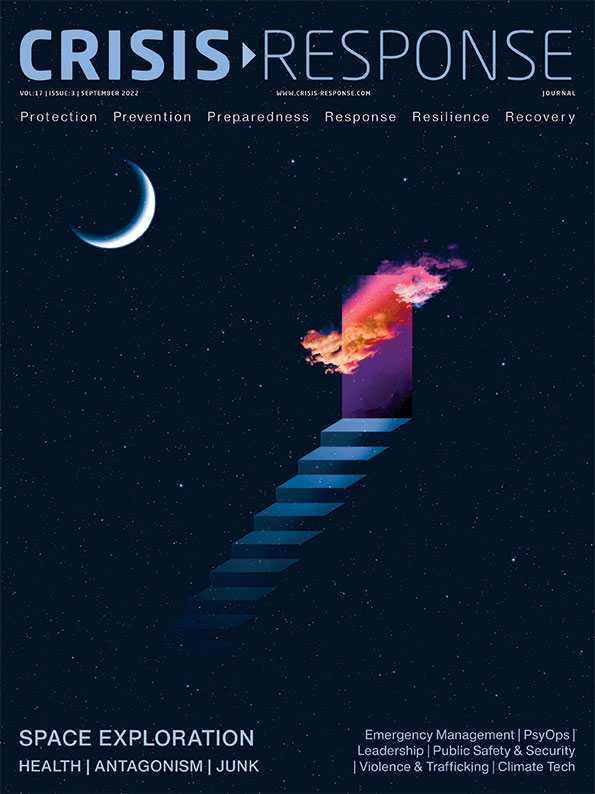 In this edition we look at the social contract, morality and ethics within the fields of disasters, emergencies and preparedness. We also focus on emergency management, as well as climate and leadership. Our main features examine public safety and security, violence, trafficking and abuse, and the risks, vulnerabilities and opportunities of outer space.
In this edition we look at the social contract, morality and ethics within the fields of disasters, emergencies and preparedness. We also focus on emergency management, as well as climate and leadership. Our main features examine public safety and security, violence, trafficking and abuse, and the risks, vulnerabilities and opportunities of outer space.
Emeritus Professor of Political Theory and Public Policy at University College London, Albert Weale, argues that we need a new social contract. He says that those whose business it is to think about risk and crisis planning must, at times, be tempted to despair of short term politics and policy. However, this is too pessimistic, as signs of capacity for long term thinking are beginning to show.
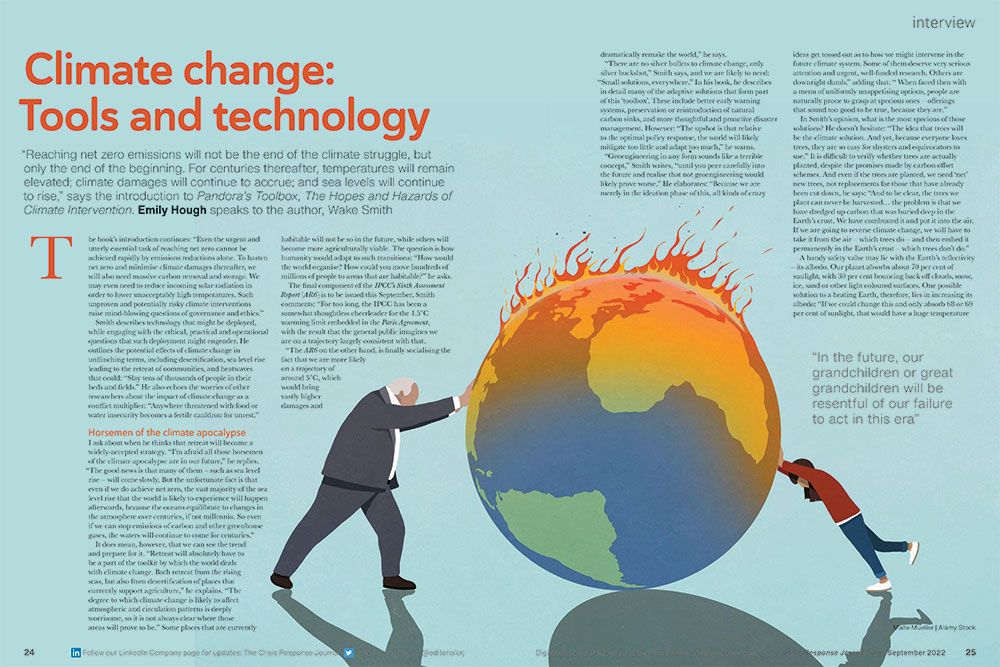
In our emergency management feature, Emily Hough speaks to Professor Lucy Easthope, author of When the Dust Settles, about hubris, hierarchy and humanity, and Beverley Griffiths maps out an ethical emergency management framework. Amanda Coleman discusses preparedness in a communications context and Olga Shashkina calls for legal frameworks, tools and expertise to be utilised more in disaster risk management.
Emily Hough interviews Wake Smith about possible technologies that could help with climate change. Plenty of people have risen to leadership positions, despite not exhibiting the behaviours that will bring out the best in their followers, says Eric McNulty, who kicks off our leadership feature by examining how leadership competencies are shifting from ‘what to do’ to ‘who you are’. Next, Andy Blackwell explains how making frontline staff part of the solution to cultural and organisational change, will keep them focused, motivated and feeling valued.
Brad Borkan outlines how the power of oration is a vital communication skill. Anthropologist Melissa Schrift examines one university’s leadership response to the Covid-19 pandemic, and Jeannie Barr describes how an article in CRJ 16:3 has inspired the EPS in a collaboration between arts and resilience professionals on new modes of working.
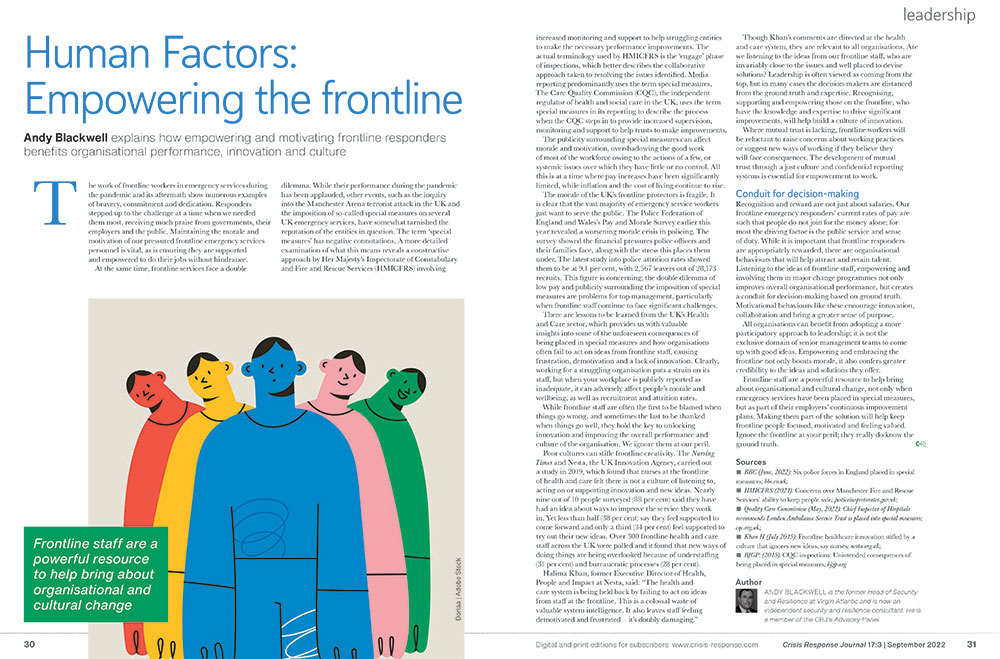
Public safety and security is our next feature, which starts with Ekaterina Kostioukhina describing how the effects of cyberpsychology and neurocognitive warfare present a real threat to democracy, peace and human rights. This is followed by Chris Needham-Bennett’s overview of psychological operations and commercial disinformation.
Next, Chris Singer examines the CBRN threat landscape, followed by Freddie McBride and Rudolf van der Berg’s warning that European roamers might not be able to call 911 on their cellphones in the USA following the 2G/3G switch off.
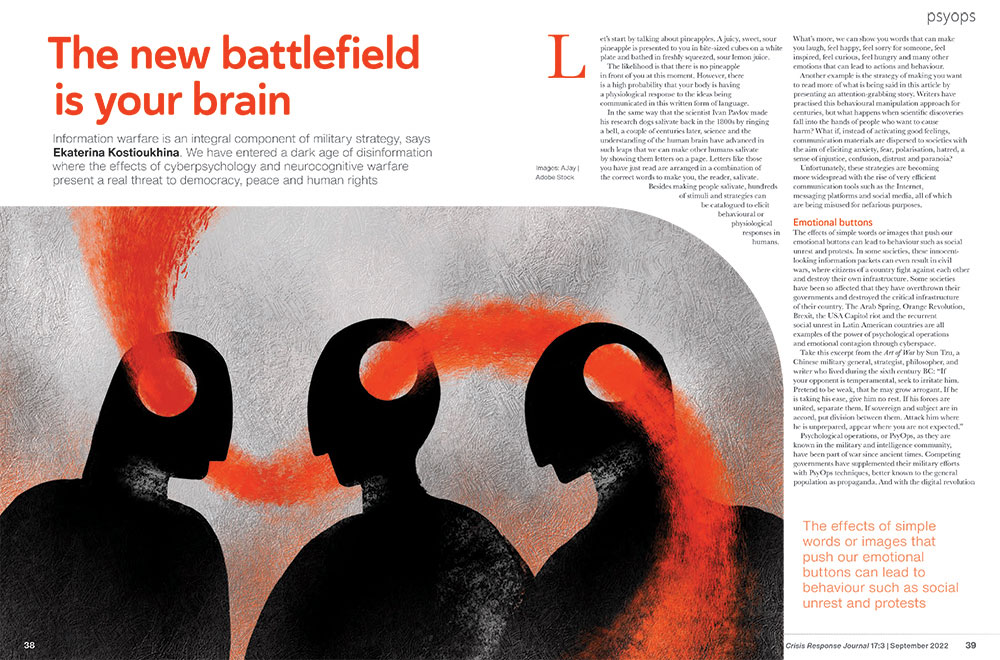
Lina Kolesnikova reports on the blame game after Liverpool football fans were tear gassed, crushed in bottlenecks at turnstiles and assaulted in Paris, and Chris Kemp describes the thinking behind a project at Wembley Stadium in the UK. Cristina Pogorevici examines the ramifications of a nightclub fire in Bucharest on Romania’s emergency response system and the country’s political atmosphere, and Dr Jennifer Hesterman looks at ways to prevent and mitigate mass shootings.
The last article in this feature is research by Lina Kolesnikova into how conflict offers a plethora of opportunities for criminal networks, from smuggling to human trafficking.
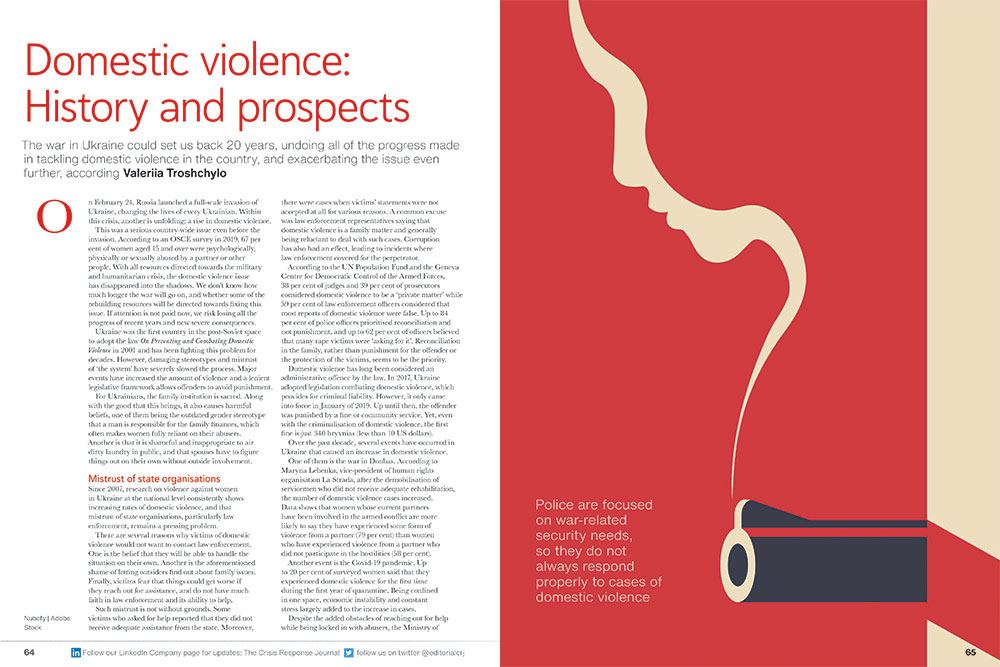
This issue, the CRJ examines violence, trafficking and abuse in detail, starting with an article by Valeriia Troshchylo that looks domestic violence in Ukraine and how conflict is aggravating the situation. Dr Debra Parkinson elaborates on the relevance of gender-based violence to emergency management and Dr Manika Kamthan examines how Covid-19 created an environment ripe for exploitation, trafficking and abuse in India.
Luavut Zahid writes on how climate change is fuelling modern-day slavery in Pakistan and the feature closes with an interview by Emily Hough, who speaks to Professor Purna Sen about a call to set up an independent panel to set out a road map to address sexual aggression at – or in the name of – the United Nations.
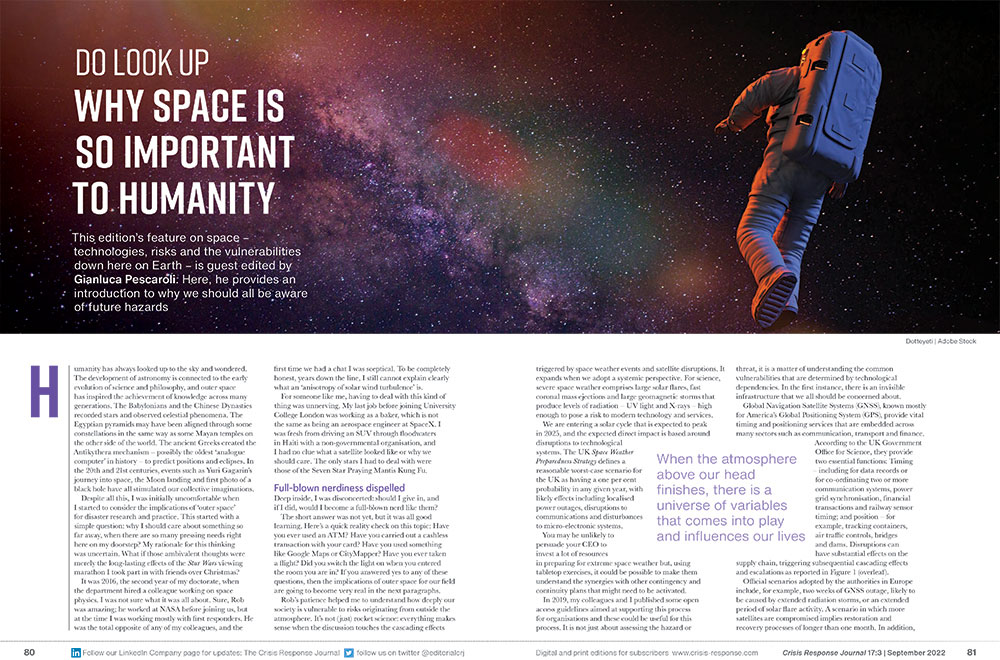
Our feature on space – technologies, risks and the vulnerabilities down here on Earth – is guest edited by Dr Gianluca Pescaroli, who provides an introduction to why we should all be aware of future hazards. Professor Johan Eriksson and Associate Professor Giampiero Giacomello ask whether the liberal principles of the peaceful use of space can prevail, despite the trends of militarisation, outsourcing, geopolitical jostling and booming private investment.
Treating medical issues in space should be planned for now, say Professor Ilan Kelman and Myles Harris, and current remote medicine provides some insight that can help. Lt Col Henry Heren of US Space Force provides his thoughts on the issue of space debris, while Professor Ewan Haggarty looks at the growing environmental and geopolitical complexities that are arising from expansion into space.
Kirsten Lagadec, who is involved in end-of-life decommissioning, controlled re-entry and active debris removal, suggests potential ways for the space sector to deal with the challenge of space debris. And he is followed by Chloe Van Dop, who warns that the use of GNSS-supported systems for emergency response signifies a gap in resilience that may become pronounced in multi-layered or cascading crisis events.